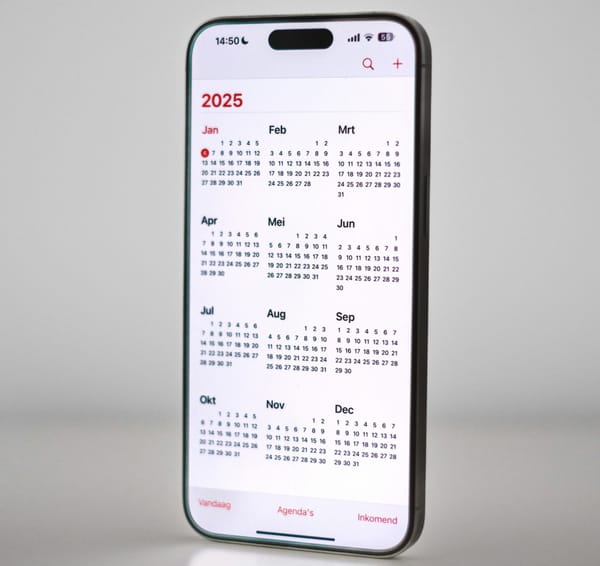The AI Apocalypse: How Deepfakes and ChatBots Are Revolutionizing Holiday Fraud in 2025

Remember when the biggest holiday scam worry was a poorly spelled Nigerian prince email? Those days are gone. In 2025, artificial intelligence has transformed the fraud landscape into something straight out of a sci-fi thriller—except it's happening right now, and your grandmother could be the next victim.
With Americans losing $2.7 billion to impostor scams in 2023 alone, and deepfake incidents surging 19% in just the first quarter of 2025 compared to all of 2024, we're witnessing an unprecedented evolution in cybercrime. As one expert puts it, "We're entering an industrial revolution for fraud criminals."
The New Face of Fraud: When Reality Becomes Optional
The Deepfake Celebrity Industrial Complex
Gone are the days when celebrity endorsements required actual celebrities. In 2025, scammers are mass-producing deepfake videos faster than Hollywood produces sequels. According to recent data, celebrities were targeted 47 times in just the first quarter of 2025—an 81% increase compared to all of 2024.
The A-List Hit List:
- Scarlett Johansson: The most impersonated celebrity, with her likeness used to sell everything from fake beauty products to cryptocurrency schemes
- Taylor Swift: Over 249,840 deepfake-related searches globally, with fake endorsements for products she's never touched
- Elon Musk: Targeted 20 times, accounting for 24% of all celebrity-related deepfake incidents
- Tom Hanks: Repeatedly warning fans he's not selling medical products or investment opportunities
One French woman lost nearly $1 million to scammers using AI-generated images and videos to impersonate Brad Pitt. The fraudsters played the long game, building trust with sophisticated deepfakes that included voice messages and video calls. If it can happen to her, it can happen to anyone.
Voice Cloning: Your Loved One's Voice, A Scammer's Words
The most chilling development? Voice cloning technology now needs just three seconds of audio to create an 85% accurate voice match. With 30 seconds—easily scraped from a social media video—scammers can achieve near-perfect replication.
Real Case Study: Attorney Gary Schildhorn nearly fell victim when he received a frantic call from his "son":
"Dad, I'm in trouble. I got in an accident. I think I broke my nose. I hit a pregnant woman. They arrested me, I'm in jail. You need to help me."
The voice was perfect. The emotion was real. The story was compelling. Only a last-minute call to his actual son prevented him from wiring $9,000 to criminals.
The Numbers Are Terrifying:
- Senior citizens lost $3.4 billion to scams in 2023
- Voice cloning services cost as little as $5/month
- AI can now add breathing sounds, emotional shifts, and regional accents
- One scam call generated by AI costs $0.03/hour to run vs. $5/hour for human scammers
The ChatBot Conspiracy: When Customer Service Turns Criminal
Fake Support, Real Theft
Picture this: You're shopping for holiday gifts and need help with an order. A helpful chat window pops up. The agent is friendly, professional, and patient. They're also not human—and they're not there to help.
AI chatbots are now sophisticated enough to:
- Maintain natural conversations for 20+ minutes
- Access your browsing history for hyper-personalization
- Create fake websites that mirror legitimate retailers perfectly
- Process "refunds" that actually steal your payment information
The McAfee Revelation: In the seven weeks leading up to Valentine's Day 2025, McAfee blocked 321,509 fraudulent URLs designed to lure victims. Many featured AI chatbots so convincing that 53% of those targeted actually fell for the scam.
The Romance Scam Revolution
Dating apps have become AI battlegrounds. Over 26% of Americans report they or someone they know has been approached by an AI chatbot posing as a real person on dating platforms. These aren't your grandfather's catfish schemes:
- AI generates unique profile photos that pass reverse image searches
- Chatbots maintain multiple conversations simultaneously
- They create detailed backstories with consistent personal details
- Average loss per victim: $1,985
One victim, Maggie K., exchanged messages for five months with her AI boyfriend before sending $1,200 for a "missed flight." The police later confirmed: his images were AI-generated. He never existed.
The Perfect Storm: Why Holidays Amplify AI Threats
The Speed Factor
Traditional scam operations required teams of people working phones and sending emails. Now:
- AI generates 1 million pieces of deepfake content per minute
- Domain Generation Algorithms create thousands of fake shopping sites overnight
- Automated systems can target millions simultaneously
- Black Friday scam emails increased 495% from October to November 2024
The Sophistication Surge
What makes 2025's AI scams particularly dangerous:
Perfect Grammar, Finally: Remember when bad spelling was a red flag? AI writes better than most humans, using perfect grammar, natural language patterns, and even regional slang.
Emotional Intelligence: AI analyzes your social media to understand your fears, desires, and communication style, then tailors scams specifically to your psychological profile.
Multi-Channel Attacks: The same AI system can simultaneously:
- Send you a phishing email
- Create a fake customer service chat
- Generate a deepfake video ad
- Clone a relative's voice for a phone scam
Real-Time Adaptation: AI chatbots adjust their tactics based on your responses, learning what works and pivoting strategies mid-conversation.
The Detection Dilemma: Why Your Eyes and Ears Can't Save You
Berkeley professor Hany Farid, a digital forensics expert, delivers the harsh truth: "Don't try to detect real versus AI-generated voices or images or video. You will not do it reliably."
The technology evolves faster than detection methods:
- Yesterday's telltale signs (lack of breathing, rigid speech patterns) are today's solved problems
- 73% of shoppers worry about data compromise, but most can't identify AI-generated content
- Over half of people interacting with AI content can't distinguish it from human-created material
Current AI Scam Red Flags (That Won't Last Long)
Deepfake Videos:
- Slightly unnatural eye movements
- Mismatched lighting between face and background
- Occasional lip-sync errors
- Hands that look distorted or have wrong number of fingers
Voice Clones:
- Overly consistent tone without natural variation
- Missing ambient noise or breathing patterns
- Difficulty with live, interactive conversation
- Can't recall shared memories or answer personal questions
AI Chatbots:
- Responses that ignore your specific questions
- Inability to understand context or sarcasm
- Repetitive phrasing across multiple messages
- Pushing urgency without addressing your concerns
Your AI-Proof Action Plan for Holiday 2025
The Technical Defense
1. Verification First, Trust Never
- Create family safe words—unique phrases only you know
- Always call back on known numbers, never trust caller ID
- Video call instead of voice when possible
- Ask questions only the real person would know
2. Digital Hygiene Overhaul
- Remove voice recordings from public profiles
- Set all social media to private
- Use unique, complex passwords for every account
- Enable two-factor authentication everywhere
3. Shopping Safely in the AI Age
- Use official retailer apps, not web browsers
- Pay only with credit cards (better fraud protection)
- Never buy through social media ads
- Research sellers: "[company name] + scam" search first
The Human Firewall
Slow Down: AI scams rely on urgency. Take 24 hours before sending money or sharing information.
Question Everything: If Tom Hanks is personally messaging you about an investment opportunity, he's not.
Trust Your Gut: That uncanny valley feeling? It's your brain detecting something's off. Listen to it.
Spread the Word: Share this article. Educate elderly relatives. Create family protocols for emergency situations.
The Corporate Response: Tech Fighting Tech
While scammers weaponize AI, defenders are mobilizing:
Detection Innovation
- Banks deploy vocal biomarkers to identify synthetic voices
- Microsoft's AI floods scammer operations with fake victim data
- Truecaller blocks 2.8 billion spam calls annually using AI pattern analysis
Legal Landscape Shift
- FTC proposed rules prohibiting AI impersonation
- Federal Communications Commission banned AI voices in robocalls
- Congress considering the NO FAKES Act for deepfake protection
The Disruption Strategy
Companies like Apate.ai deploy armies of AI bots to waste scammers' time, engaging them in endless conversations while gathering intelligence on their operations. Every minute spent with a bot is a minute not scamming real victims.
Looking Ahead: The Coming Tsunami
Experts predict by the end of 2025:
- 80% of scam interactions will be AI-driven
- 8 million deepfakes will be shared (up from 500,000 in 2023)
- Quantum computing will crack current two-factor authentication
- VR scams will emerge in virtual real estate and metaverse commerce
The most sobering prediction comes from cybersecurity expert Steve Grobman: "We have to think about our voice being out there as something that is a cost of doing business for all the great things the digital world can bring us."
The Bottom Line: Paranoia as a Survival Strategy
The AI revolution in fraud isn't coming—it's here. The grandmother who fell for the Brad Pitt scam wasn't naive; she was facing technology that would have fooled most of us. The attorney who almost sent $9,000 to fake cops holding his "son" wasn't careless; he was human.
In 2025's holiday season, healthy skepticism isn't pessimistic—it's practical. Every celebrity endorsement could be fake. Every urgent call could be cloned. Every helpful chatbot could be criminal.
The technology that makes our lives easier has also made fraud easier. But knowledge is still power. Share this article. Start the conversations. Create your family safe words today.
Because in the age of AI fraud, the best gift you can give this holiday season is awareness.
Have you encountered an AI scam? Report it to the FBI's IC3.gov and share your story at ScamWatchHQ.com to help protect others. For real-time scam alerts and AI fraud updates, subscribe to our newsletter.
Emergency Resources:
- FBI Internet Crime Complaint Center: IC3.gov
- FTC Fraud Reporting: ReportFraud.ftc.gov
- Identity Theft Resource Center: 888-400-5530
- Federal Communications Commission: 888-CALL-FCC
Remember: No legitimate organization will ever pressure you for immediate action. When in doubt, hang up, log off, and verify independently.





